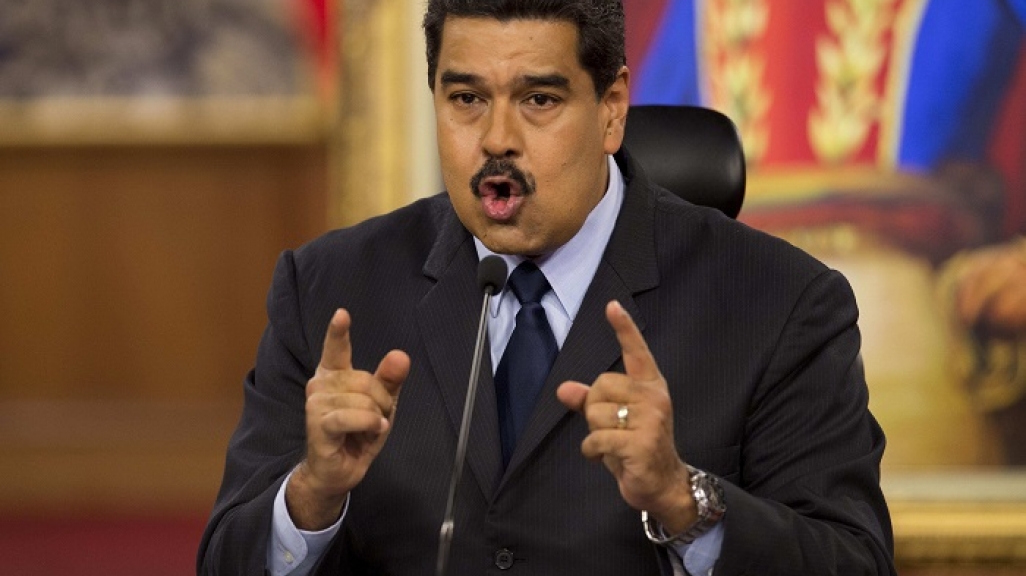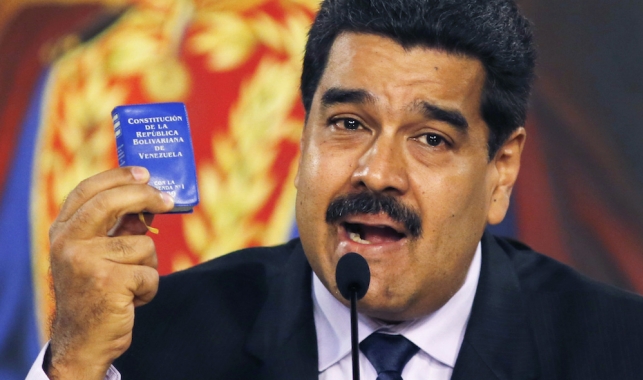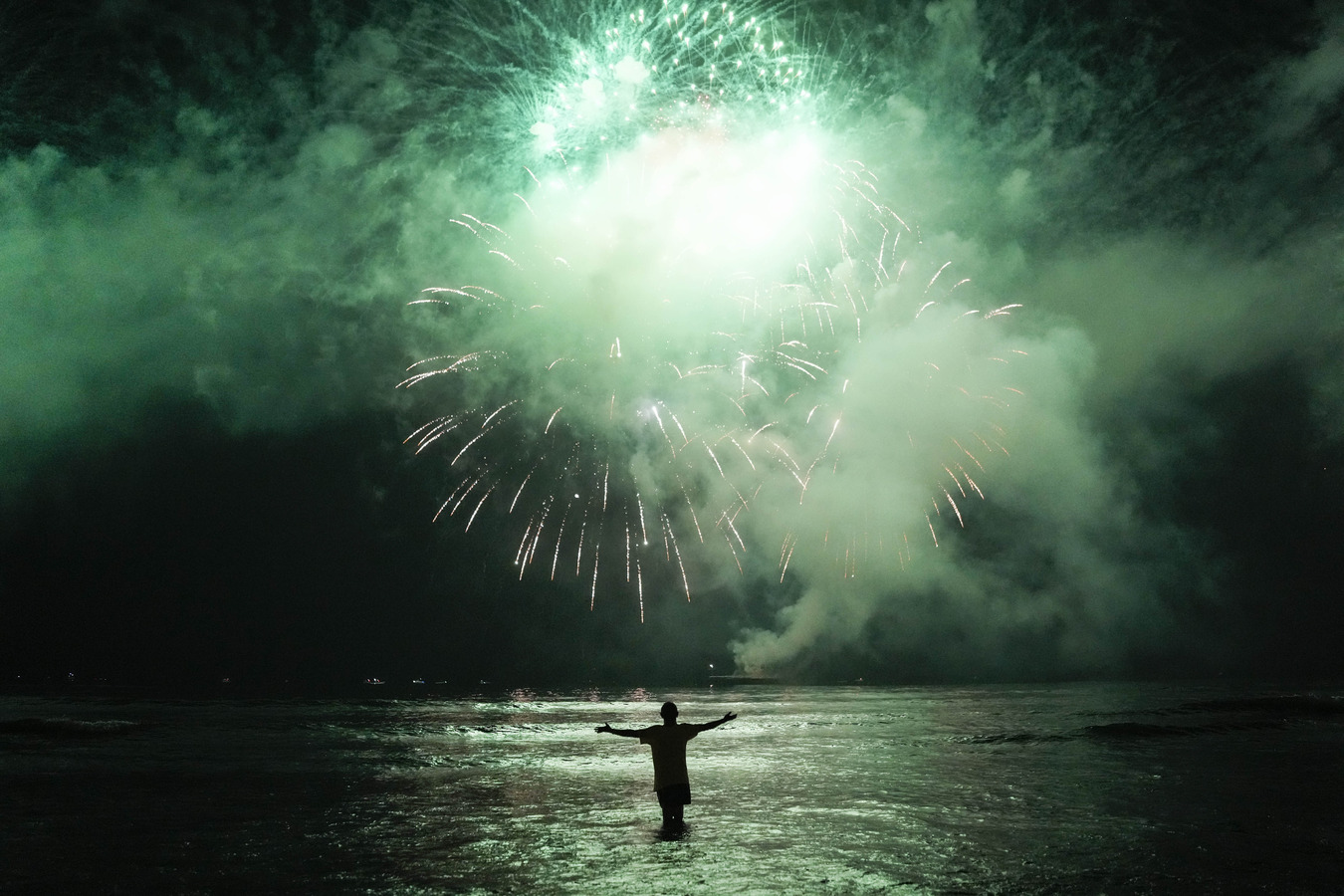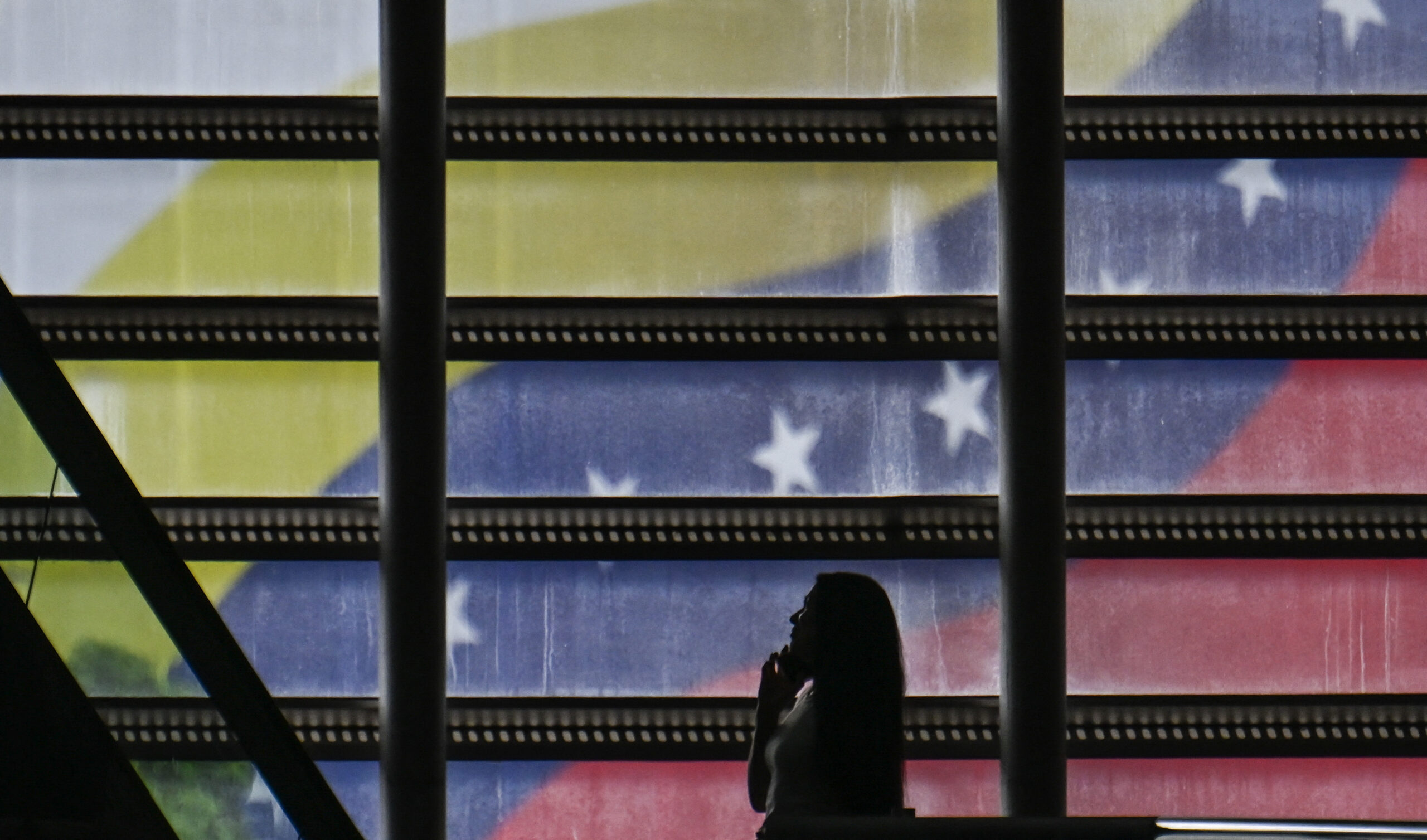Venezuela Update: 3 Things to Know about Maduro's Remaining 2 Years in Office
Venezuela Update: 3 Things to Know about Maduro's Remaining 2 Years in Office
Venezuelans marked April 19, their president’s fourth anniversary in office, with mass protests. Here are issues to keep in mind for the rest of his six-year term.
Updated, April 20 — April 19 marks four years since Venezuelan President Nicolás Maduro’s six-year term began—an anniversary thousands of Venezuelans are marking with massive protests throughout the country. Three people died in Wednesday’s protests, according to Reuters, with another five fatalities in protests the week prior.
Granted, the expectation is that democratically elected leaders serve their full terms, but Maduro’s resilience is particularly improbable given all that’s wracked Venezuela in recent years. Not even counting this year’s and 2014’s fatal protests, the former bus driver has managed to stay in office despite 1) barely winning a contested special election, 2) seeing oil, the country’s chief export, lose as much as two-thirds of its value since he took office and slashing imports 75 percent in response, 3) leading the country with the world’s largest proven oil reserves into the first case of hyperinflation in Latin America in 27 years, 4) stacking the Supreme Court with loyalists and other moves that flout the Constitution, and 5) imprisoning or disqualifying his biggest political opponents.
Other heads of state have fallen for seemingly less by comparison, the starkest comparison arguably being Dilma Rousseff in neighboring Brazil, whom Congress impeached in 2016 over charges of improper accounting of government funds—albeit while a corruption scandal was, and continues, raging.
And yet, Maduro remains. Here are three items to keep an eye on as we look to the rest of his term.
1. If regional elections are fair—or happen at all
Elections for governor and state legislatures were supposed to happen at the end of December 2016, per the Constitution, but in October the National Electoral Council (CNE) announced they’d take place in the second quarter of 2017. Additionally, in February the CNE announced new stipulations that political parties renew their legal status by April.
But the rules for renewal are so steep they are “almost impossible” to meet, said the lone dissenting CNE official. The ruling United Socialist Party of Venezuela, or PSUV, is exempt from renewal. After the CNE quashed an effort to hold a recall referendum on Maduro’s presidency in the fall of 2016, it’s not beyond the realm of possibility that these elections might be postponed indefinitely or at least until a sufficient number of opposition parties fail to meet the requirements for renewal.
Beyond disqualifying parties, the opposition’s most popular leader in polls, Leopoldo López, marked three years in prison in February. The next biggest figure, Henrique Capriles, the current governor of Miranda and Maduro’s challenger in 2013, learned on April 7 that the government had declared him ineligible to run in elections for the next 15 years.
2. If Venezuela and PDVSA are able to keep servicing their debt
Venezuela and the state-owned oil company pulled off big bond payments in April, having paid $3.8 billion so far in 2017, with an estimated $5.4 billion left on the year. While analysts are getting worried about what they see as increasingly distressed payments, some investors are betting on the country’s “surreal” ability to pay and keep inking new deals with Caracas.
One looming question for investors like China and Russia is whether, if and when Maduro is no longer in office, Venezuela’s next administration will similarly honor the terms of their respective deals, or if the new leaders would be more inclined to default.
3. Who in the international community speaks out
New administrations in Argentina, Brazil, and Peru notably started speaking up more about Venezuela in the last year, in particular calling for the government to restore democratic order and hold regional elections. “Populism is an acid that has been corroding the pillars of Venezuelan democratic institutions,” wrote Brazilian Foreign Minister Aloysio Nunes in Americas Quarterly. The Mercosur trade bloc, from which Venezuela has been suspended, invoked its democratic clause earlier this month calling on the country to take steps to ensure the separation of powers and to respect human rights and democracy.
The United States’ role is more complicated, since direct movements from Washington tend to only fuel the chavista base, but opposition leader Lilian Tintori snagged a meeting with U.S. President Donald Trump in his first 30 days in the White House, and support for Venezuela’s political prisoners on Capitol Hill is bipartisan. But with an understaffed State Department—including no nominee to-date for assistant secretary of state for Western Hemisphere Affairs—Washington’s ability to corral regional momentum on Venezuela is limited, leaving openings for other countries to take a lead role.
Mexico, long reluctant to enter the Venezuela fray, did so this spring. Foreign Secretary Luis Videgaray led a group of nations in the Organization of American States (OAS) to pressure Venezuela to hold constitutionally mandated regional elections promptly, and President Enrique Peña Nieto met for the first time with Tintori on April 7.
One of the few holdouts of support for the Maduro administration is a handful of Central American and Caribbean nations, long benefactors under Hugo Chávez’s PetroCaribe plan, but their support could wane if Venezuelan oil production continues to fall off. For now, however, the countries have the ability—and votes—to hold up OAS Secretary-General Luis Almagro’s efforts to invoke the democratic charter against Venezuela. U.S. Senator Marco Rubio (R-FL) warned several Central American countries they could lose funding from Washington if they failed to hold Venezuela to account. While a push to invoke the charter continues, on April 3, five of PetroCaribe’s 18 members signed the OAS’ first resolution on Venezuela in 15 years: Bahamas, Guatemala, Honduras, Jamaica, and Saint Lucia.










